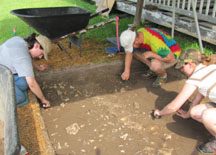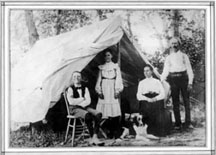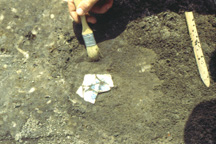Lesson Plans
Archaeology has been proven by educators to be an effective forum within which students can learn about history, science, and mathematics. This web page is intended to help K-12 teachers incorporate archaeology into their curricula through lesson plans adapted from several well-tested sources. For instance, those plans focusing on basic archaeological concepts are based on subjects recommended for study in Intrigue of the Past: A Teacher's Activity Guide for Fourth through Seventh Grades (Smith et al.:1993), a manual used for Project Archaeology teacher workshops. Other lesson plans deal with the process of excavation, laboratory analysis of material culture, and preservation of archaeological resources.
These plans are designed to be implemented as a complete unit on the basics of archaeology.
However, each lesson may be used individually as a supplement to an existing curriculum.
These lesson plans are designed to help meet criteria of the Alabama Course of Study and the Stanford 9 Objectives for teachers of the Social Sciences and Science at the upper elementary and intermediate
grade levels.
The following lessons introduce students to why the past is important and how we can
study it objectively. Each of these lessons explains a basic step necessary for the
proper excavation of an archaeological site or laboratory analysis. The careful use
of scientific methods in this process should be emphasized. There's a lot more to
archaeology than just digging!
by Dr. Philip Carr
How do archaeologists make drawings of what they find?

Why is your past important to you? This lesson encourages interest in cultural heritage and family history.

How do archaeologists learn about the lives of a people by studying their trash?



